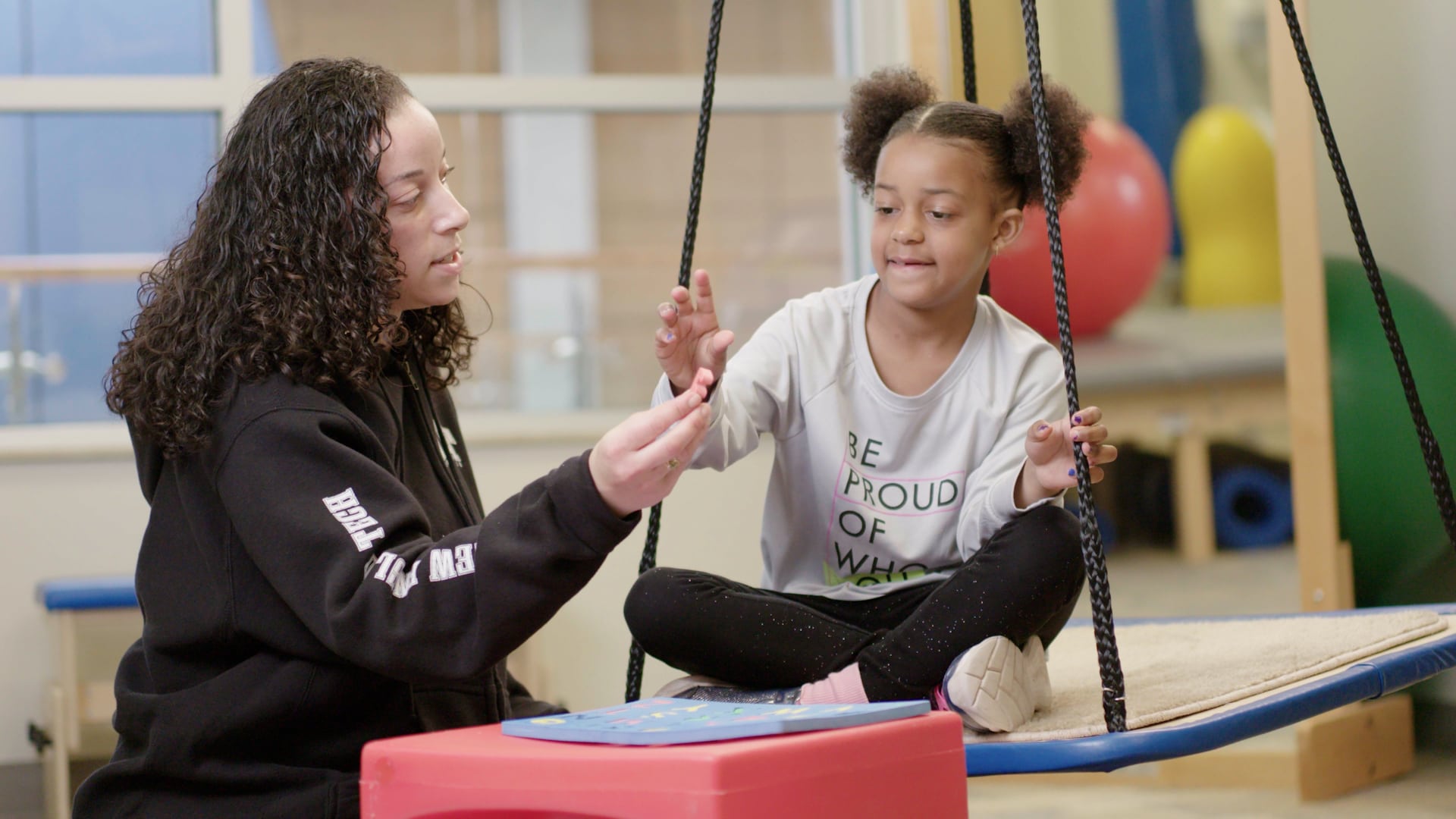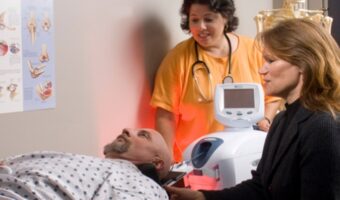Program Overview

Are you interested in a career where you will have a profound impact on the quality of life of individuals from birth to geriatric? Certified occupational therapy assistants are an integral part of the healthcare team. We see people holistically, meaning a focus on the person, not just their diagnosis. Occupational therapy looks at the person’s ability to engage in meaningful, everyday tasks, including in their work settings. The hands-on learning environment connects students in an intimate, supportive atmosphere allowing students the opportunity to gain knowledge and skills taught by experienced practitioners and educators.
This program is recognized by the Accreditation Council of Occupational Therapy Education (ACOTE). Additionally, the program meets all the requirements for graduates of the program to sit for the National Certification Examination given by the National Board for Certification in Occupational Therapy (NBCOT). Eligible candidates must be free of a felony charge which may impact the ability to sit for the NBCOT exam. Graduate outcomes show that our students are highly successful in program.
Occupational Therapy Master’s Degree
Another exciting opportunity exists for those considering a career in Occupational Therapy! NEIT also offers a bridge program to become a master’s degree level registered occupational therapist. You can earn this degree in 2 1/2 years!
Occupational Therapy Post-Professional Doctorate
Our programs also include a post professional doctorate in occupational therapy (insert program link here) which is an extraordinary way to advance your practice by using evidence to guide you through a comprehensive and student-centered research project to advance your professional career.
Read More The Occupational Therapy Assistant (OTA) associate degree program prepares students to help a variety people in many different environments. It is the job of an occupational therapy assistant to assist people of all ages, with varying abilities or handicaps, to gain independence in their day-to-day activities. The primary focus of an occupational therapy assistant is to enhance participation in meaningful occupations for people of all ages, regardless of the type of limitation that interferes with their daily life activities. Being an occupational therapy assistant is a hands-on career, which involves working to change people’s lives for the better. As every client has a unique set of circumstances, OTAs help develop and carry out an individualized care plan for each client. Graduates of the Occupational Therapy Assistant Associate degree program work in traditional medical environments and work in community-based settings, work environments, schools, and other agencies addressing the needs of individuals with disabilities. In the field, the occupational therapy assistant works cooperatively with a registered occupational therapist (OTR) responsible for all aspects of occupational therapy care. Most of the time, however, the OTA works independently with individual clients or groups. In the associate degree program, students learn to: After completing all classroom training on campus and Level I Fieldwork off-campus, students of the occupational therapy assistant program enter the community for Level II Fieldwork. The two Level II Fieldwork experiences give students many opportunities to apply classroom training to real-life situations. Upon completing all degree requirements, associate degree students will be eligible to sit for the National Certification Examination for Occupational Therapy Assistants. Only after passing this exam will a student qualify as a Certified Occupational Therapy Assistant (COTA). Employment for a certified occupational therapy assistant is available in various settings in physical disabilities, pediatrics, geriatrics, and mental health and wellness programs. Besides, graduates of this associate degree program are eligible to continue with a Bachelor of Science Degree in Rehabilitation Sciences or apply for entry to the Master of Science Degree in Occupational Therapy. This program is recognized by the Accreditation Council of Occupational Therapy Education (ACOTE) of the American Occupational Therapy Association (AOTA), located at 6116 Executive Boulevard, Suite 200, North Bethesda, MD 20852-4929. ACOTE’s telephone number, c/o AOTA, is 301-652-AOTA, and the website address is www.ACOTEONLINE.org. This program meets all the requirements for graduates to sit for the National Certification Examination given by the National Board for Certification in Occupational Therapy (NBCOT). After successful completion of this exam, the individual will be a Certified Occupational Therapy Assistant, (COTA). In addition, most states require licensure to practice; however, state licenses are usually based on the results of the NBCOT Certification Examination. A felony conviction may affect a graduate’s ability to sit for the NBCOT certification examination or attain state licensure. To access NBCOT examination data, please use this link provided: https://www.NBCOT.ORG/EDUCATORS-FOLDER/SCHOOLPERFORMANCE ACOTE® accredited occupational therapy and occupational therapy assistant educational programs satisfy the states’ educational requirements in all states, the District of Columbia, and Puerto Rico. Students graduating from an ACOTE® accredited occupational therapy and occupational therapy assistant educational program are eligible to take the National Board for Certification in Occupational Therapy (NBCOT) certification exam and apply for licensure in all states, the District of Columbia, and Puerto Rico. For more information regarding state qualifications and licensure requirements, please refer to the AOTA State Licensure webpage. Cost of attendance: 1) per credit cost, 2) fees, and 3) tuition policies.Full Description
Year
Students Entered/Graduated
Graduation Rate
2021
18/15
83%
2022
16/11
69%
2023
18/13
72%
Total
52/39
75%
Program Cost
Year
Tuition
Fees
Total
Year 1
$33, 225
$2,400
$35,625
Year 2
$33, 225
$2,400
$35,625
Grand Total = $71,250
Potential Career Opportunities
Students that graduate from our program can find employment in diverse environments. From medical facilities like hospitals and clinics to community centers, corporates settings to schools, and educational institutes, all rely on occupational therapy assistants. Whichever avenue you choose to enter, you will end up working under the supervision of registered occupational therapists (OTR).
Occupational Therapy Assistant
FAQ
-
What degree do you need to be an occupational therapy assistant?
Occupational therapy assistants need to graduate from an associate degree program from an accredited institution to qualify for entry-level work.
-
What can I do with an occupational therapy assistant degree?
Individuals with an Occupational Therapy Assistant (OTA) degree can work in schools, rehabilitation centers, skilled nursing facilities, or in-home health.
-
Is it hard to become an occupational therapy assistant?
Though classes required for occupational assistants may be challenging, associate degree programs can be completed in as little as 18 months, with students entering the workforce immediately upon graduation.



